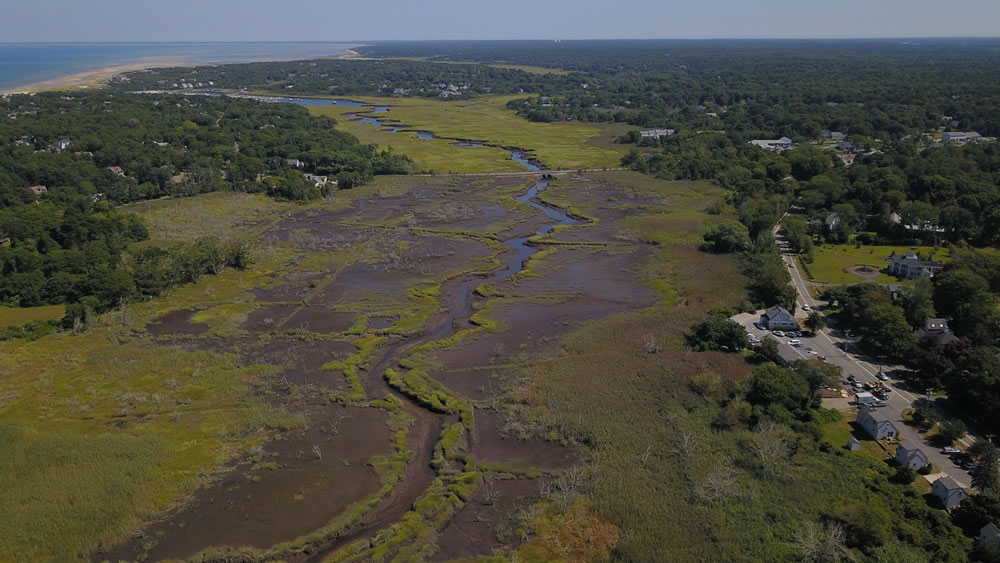Achievements

Advocacy Works
Cape Cod Water Protection Fund
APCC championed the Cape Cod and Islands Water Protection Fund put forward by Senator Julian Cyr and Representative Sarah Peake. It was signed into law as part of the short-term rental tax bill by Governor Charlie Baker in December 2018.
The enabling legislation for the Cape Cod and Islands was amended in a supplemental budget signed into law by Governor Baker in March 2019.
The creation of the fund was a priority for the entire Cape & Islands legislative delegation with the hope that the fund will bring significant state support to all participating municipalities in the region to address wastewater needs and help finance water quality improvement projects. The fund was created to capture state revenue to help Cape Cod towns pay for upgrading their wastewater plans. By assessing a 2.75 percent excise tax on traditional lodging and short-term rentals, the seasonal surge of visitors to the region that contribute to wastewater will help contribute toward the high cost of wastewater treatment. It is expected that the fund will provide $1 billion toward the $4 billion cost of wastewater treatment.
Collaboration Brings Results
Future Cape Cod
As a follow up to the passing of the legislation establishing the Cape Cod Water Protection Fund, a group of Cape organizations including the Chamber of Commerce, Cape & Islands Association of Realtors and the Housing Assistance Corporation came together to ask communities to adopt a model bylaw that would create a town-managed fund, controlled by each town for projects it chooses. Importantly, at least 50% of the local option rooms excise tax would be directed to an Infrastructure and Community Investment Stabilization Fund for housing, wastewater, broadband, transportation and competitive marketing of Cape Cod.
Cape Cod Climate Change Collaborative
APCC is a founding member of the Cape Cod Climate Change Collaborative, which was established in 2016. The Collaborative’s mission is to bring the region to net zero carbon emissions by uniting available knowledge, resources, talents and tools and working with various networks representing sectors such as the faith community, transportation, education, the built environment and others.
The first Cape & Islands Roundtable was held in 2018, bringing together over 125 invited leaders from around the region to provide input on an action plan for reducing regional carbon emissions. A second roundtable event was held in 2019 where sector networks were galvanized. APCC serves on the Collaborative’s board of directors and its steering committee.
Leading With Action
Going Solar
In early 2020, through a solar challenge grant from Tern Foundation, APCC’s office went solar. The climate crisis was a motivating factor to lead by action. Our solar installation includes a battery backup which also helps the grid in peak demand, while providing power to the office during outages.
Support of Vineyard Wind
In 2018, APCC was the first environmental organization in the nation to voice support for the Vineyard Wind offshore wind project south of Martha’s Vineyard. In the summer of 2019, APCC convened a gathering of environmental and civic nonprofits and regional leaders in a public show of support for Vineyard Wind when the project was stymied by federal review.
Speaking Out
APCC continues our over five decades of forceful vigilance in speaking out loudly against threats to the environment. Lately, much of our efforts have been focused on assaults on the environment on the federal level. We’ve had to weigh in on proposed leasing of critical habitat area off the Massachusetts coast to offshore oil drilling – the same fight APCC undertook in the 1980s. We continue to speak out on the environmental protection rollbacks taken by the Trump administration, especially those that directly affect Cape Cod.
State of the Waters Cape Cod
A multi-year project was undertaken by APCC in 2018 to assess existing water quality data and to convey the findings to the public. The results can be found on a dedicated website, CapeCodWaters.org. State of the Waters Cape Cod also has a social media presence on Facebook and a blog. This project continues with annual updates with funding from the Massachusetts Environmental Trust.
